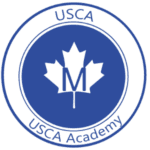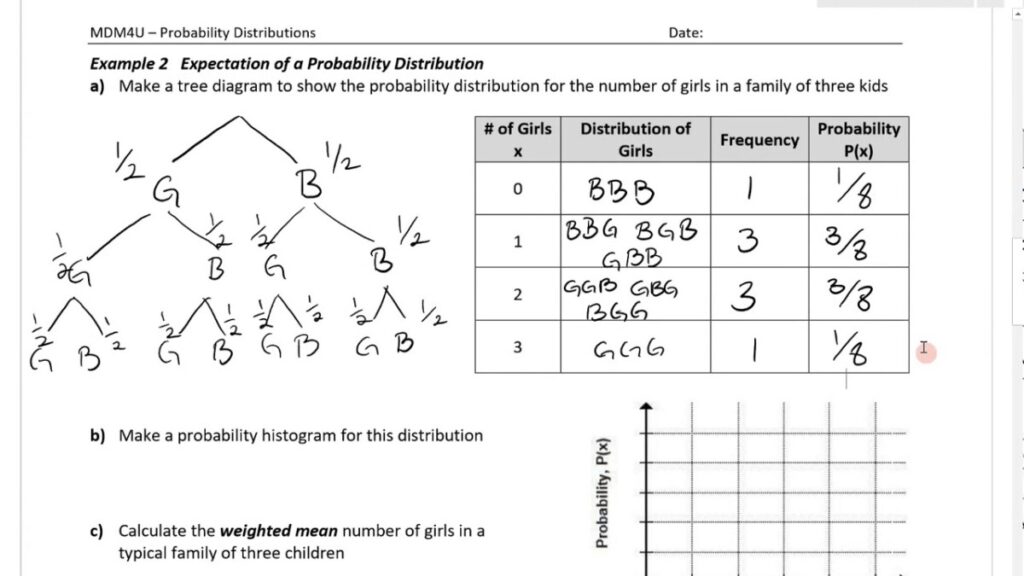MDM4U - Grade 12 Mathematics of Data Management
Send Us A Message
MDM4U Mathematics of Data Management
| Course Code: | MDM4U |
| Course Type: | University Preparation |
| Grade: | 12 |
| Credit Value: | 1.0 |
| Prerequisite: | Functions, Grade 11, University Preparation or Functions and Applications – Grade 11, University or College Preparation |
| Department: | Mathematics |
Read More About Grade 12 English, ENG4U
Course Description For MDM4U Grade 12 Mathematics of Data Management Online Course
Grade 12 Data Management (MDM4U) is designed to expand your knowledge of mathematics with a focus on practical applications in data analysis. This course will teach you how to organize and analyze large data sets, solve real-world problems using probability and statistics, and complete a comprehensive investigation that integrates essential statistical concepts and skills. You’ll also develop advanced mathematical thinking, preparing you for success in senior-level math and beyond.
This course is especially valuable for students planning to pursue university programs in business, social sciences, or humanities, as it provides the foundational skills needed to excel in these fields. Whether you’re exploring careers in data management, research, or economics, Grade 12 Data Management equips you with the tools to succeed in an increasingly data-driven world.
Overview of Units and Timelines for Grade 12 Mathematics of Data Management (MDM4U)
Here’s the suggested sequence for delivering course units, along with the recommended hours needed to complete each one. For a detailed breakdown of the specific expectations and activities included in each unit, refer to the Unit Overviews provided in the MDM4U course profile.
| Unit | Titles and Descriptions | Time and Sequence |
| Unit 1 | Introduction to the Family and Research Methods In this unit, students will learn about social factors that have influenced the historical evolution of the family and how different social factors have influenced the historical evolution of the family. Students will further learn about is the purpose of family. They will also learn how to begin the social science research process. | 28 hours |
| Unit 2 | The Development of Individuals In this unit students will learn what personal factors influence individual development and how reliable and valid sources of information are determined. | 27 hours |
| Unit 3 | The Development of Intimate Relationships By the end of this unit, students will demonstrate an understanding of the what personal factors influence the development of intimate relationships, in what ways research findings can be authentically summarized and when it is appropriate to paraphrase or summarize academic research. | 27 hours |
| Unit 4 | The Development of Families In this unit, students will learn how personal and social factors influence the development of families, what personal factors influence the development of families and in what ways academic research ca effectively communicated. | 25 hours |
| Unit 5 | Final Evaluation The final assessment task is a three hour exam worth 30% of the student’s final mark. | 03 hours |
| Total | 110 hours | |
Families in Canada: Students learn best when they are engaged in a variety of ways of learning. Canadian and world studies courses lend themselves to a wide range of approaches in that they require students to research, think critically, work cooperatively, discuss relevant issues, and make decisions about significant human concerns. When students are engaged in such active learning strategies, they tend to retain knowledge for longer periods and to develop meaningful skills.
Active learning strategies also enable students to apply their knowledge and skills to real-life issues and situations. A number of strategies include:
|
Case studies |
Written assignments |
Graphing |
|
Decision making exercises |
Direct Instruction |
Independent Reading |
|
Independent Study |
Cooperative Learning |
Multimedia Productions |
|
Model Analysis |
Group discussion |
Self-Assessments |
Families in Canada: Assessment is a systematic process of collecting information or evidence about student learning. Evaluation is the judgment we make about the assessments of student learning based on established criteria. The purpose of assessment is to improve student learning. This means that judgments of student performance must be criterion-referenced so that feedback can be given that includes clearly expressed next steps for improvement.
The assessment will be based on the following processes that take place in the classroom:
| Assessment FOR Learning | Assessment AS Learning | Assessment OF Learning |
|---|---|---|
|
During this process the teacher seeks information from the students in order to decide where the learners are and where they need to go. |
During this process the teacher fosters the capacity of the students and establishes individual goals for success with each one of them. |
During this process the teacher reports student’s results in accordance to established criteria to inform how well students are learning. |
| Conversation | Conversation | Conversation |
|
Classroom discussion Self-evaluation Peer assessment |
Classroom discussion Small group discussion Post-lab conferences | Presentations of research Debates |
| Observation | Observation | Observation |
| Drama workshops (taking direction) Steps in problem solving | Group discussions | Presentations Group Presentations |
| Student Products | Student Products | Student Products |
| Reflection journals (to be kept throughout the duration of the course) Check Lists Success Criteria |
Practice sheets Socrative quizzes |
Projects Poster presentations Tests In Class Presentations |
Families in Canada: Tools of varying complexity are used by the teacher to facilitate this. For the more complex evaluations, the criteria are incorporated into a rubric where levels of performance for each criterion are stated in language that can be understood by students.
|
Strategy |
Purpose |
Who |
Assessment Tool |
|
Self Assessment Quizzes |
Diagnostic |
Self/Teacher |
Marking scheme |
|
Homework check |
Diagnostic |
Self/Teacher |
Checklist |
|
Teacher/Student Conferencing |
Assessment |
Self/Teacher |
Anecdotal records |
|
Investigations |
Assessment |
Self/Teacher |
Checklist |
|
Problem Solving |
Evaluation |
Teacher |
Marking scheme |
|
Unit Tests |
Evaluation |
Teacher |
Marking scheme |
|
Final Exam |
Evaluation |
Teacher |
Checklist |
Families in Canada: Assessment is embedded within the instructional process throughout each unit rather than being an isolated event at the end. Often, the learning and assessment tasks are the same, with formative assessment provided throughout the unit. In every case, the desired demonstration of learning is articulated clearly and the learning activity is planned to make that demonstration possible. This process of beginning with the end in mind helps to keep focus on the expectations of the course as stated in the course guideline. The evaluations are expressed as a percentage based upon the levels of achievement.
The evaluation of this course is based on the four Ministry of Education achievement categories of knowledge and understanding (25%), thinking (25%), communication (25%), and application (25%). The evaluation for this course is based on the student’s achievement of curriculum expectations and the demonstrated skills required for effective learning.
The percentage grade represents the quality of the student’s overall achievement of the expectations for the course and reflects the corresponding level of achievement as described in the achievement chart for the discipline.
A credit is granted and recorded for this course if the student’s grade is 50% or higher. The final grade for this course will be determined as follows:
- 70% of the grade will be based upon evaluations conducted throughout the course. This portion of the grade will reflect the student’s most consistent level of achievement throughout the course, although special consideration will be given to more recent evidence of achievement.
- 30% of the grade will be based on a final evaluation of two products administered at the end of the course. The first product is a Project, subdivided into three distinct subsections and is worth 15% of the overall course marks. This Project will be evaluated using a marking scheme and a rubric. The second product will be a final exam of well-formulated multiple choice questions requiring information from the whole course as well as the student’s reports completed through-out the course.
Resources
Individuals and Families: Diverse Perspectives – 9780070738768
Statistics Canada: http://www.statcan.gc.ca/start-debut-eng.html
Frequently Asked Questions (FAQ)
It emphasizes data organization, analysis, and interpretation using mathematical concepts, preparing students for university-level studies in various fields.
You must have completed Functions, Grade 11 (University Preparation) or Functions and Applications, Grade 11 (University/College Preparation) to ensure a solid math foundation.
You’ll use sociological, psychological, and anthropological research methods to examine real-life data about Canadian families, applying mathematical tools to better understand societal trends.
You’ll experience a blend of case studies, group discussions, independent research, and problem-solving exercises, fostering both collaborative learning and individual skill development.
Coursework accounts for 70% through assignments and tests, while a final exam and project worth 30% together evaluate your overall understanding of data management principles.


